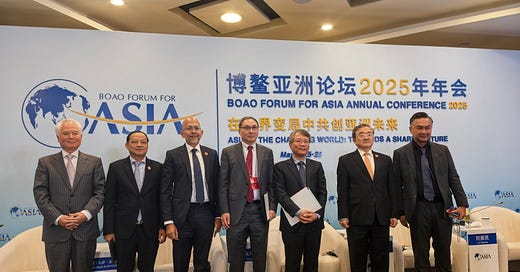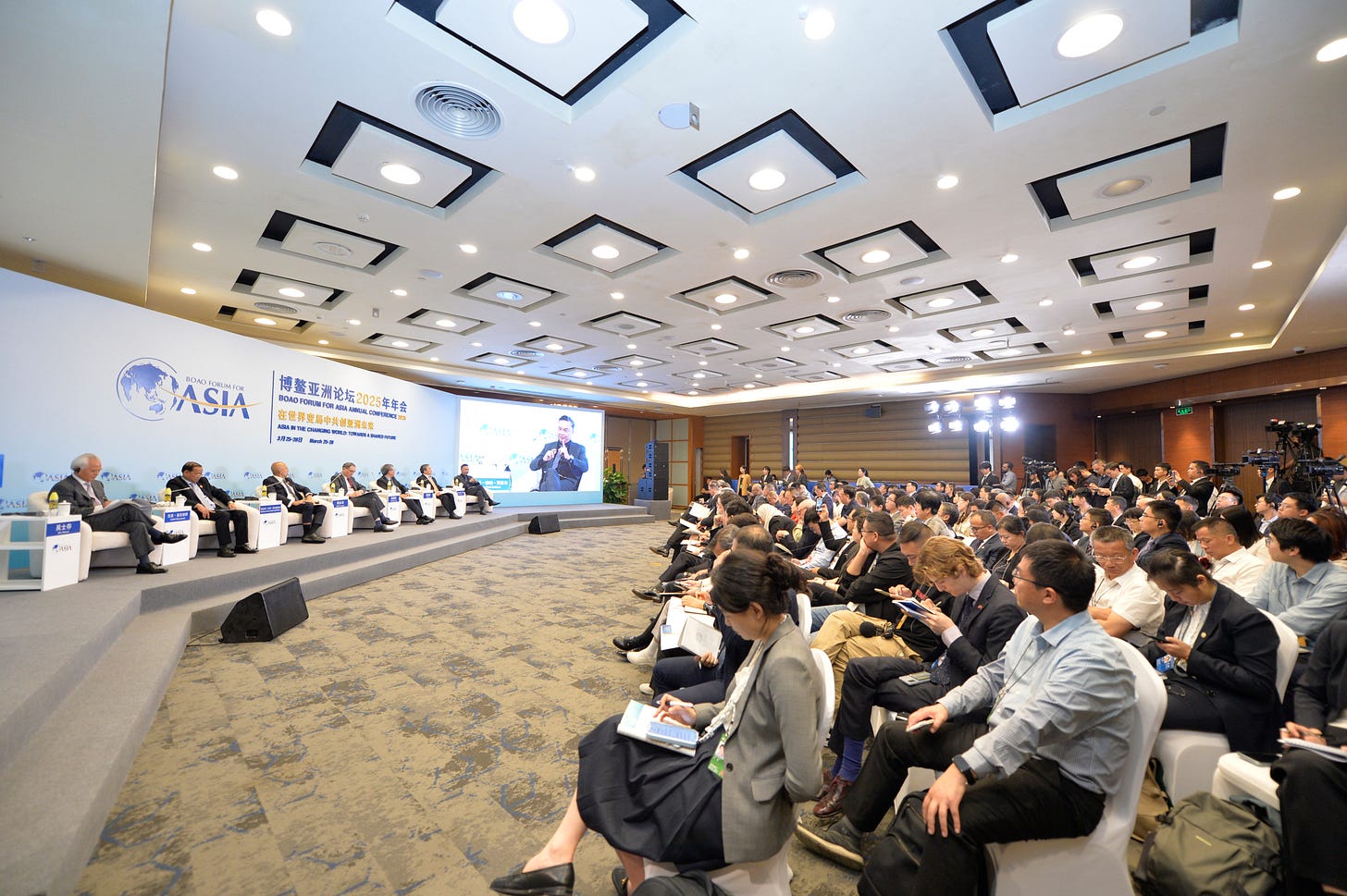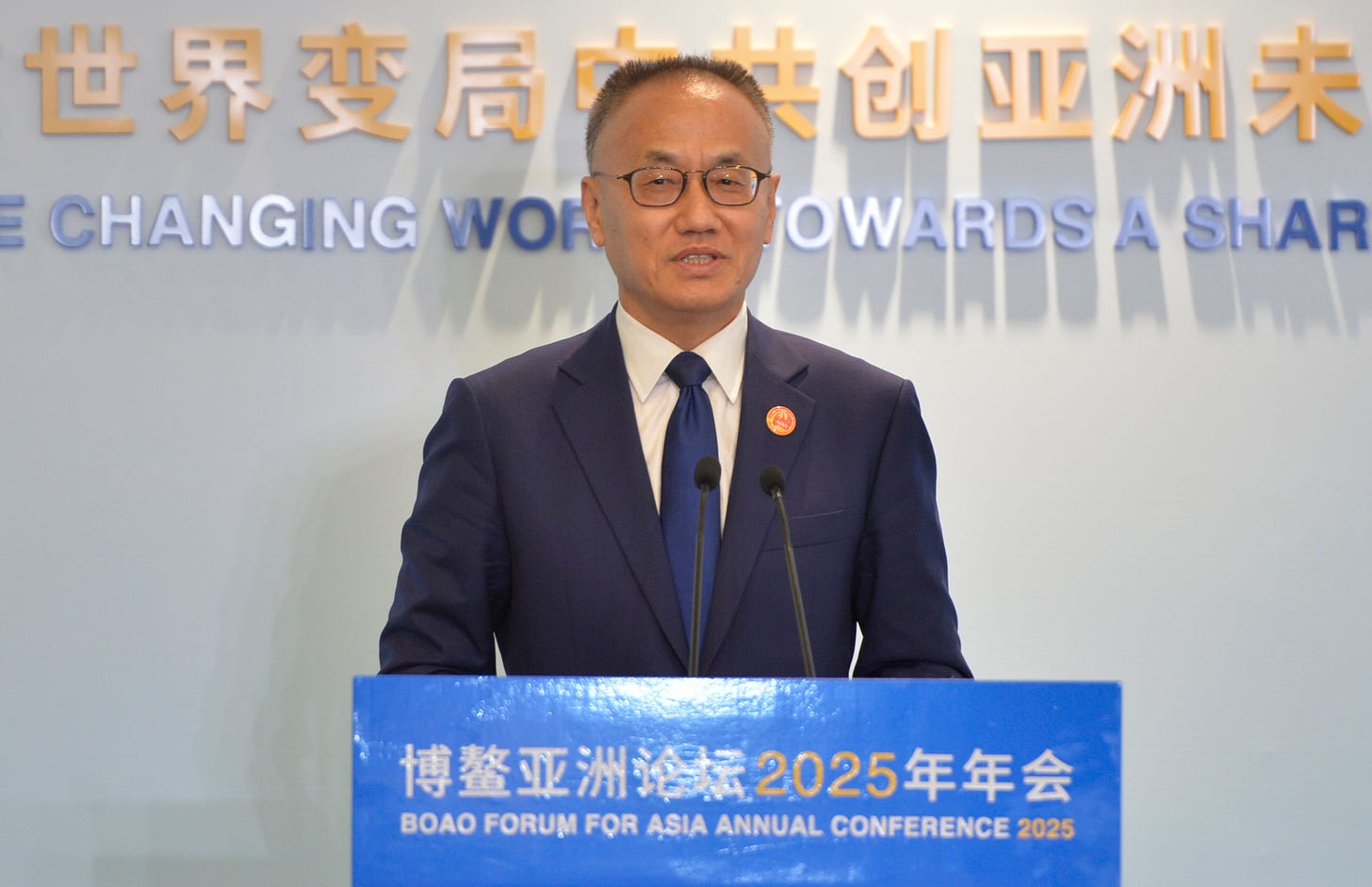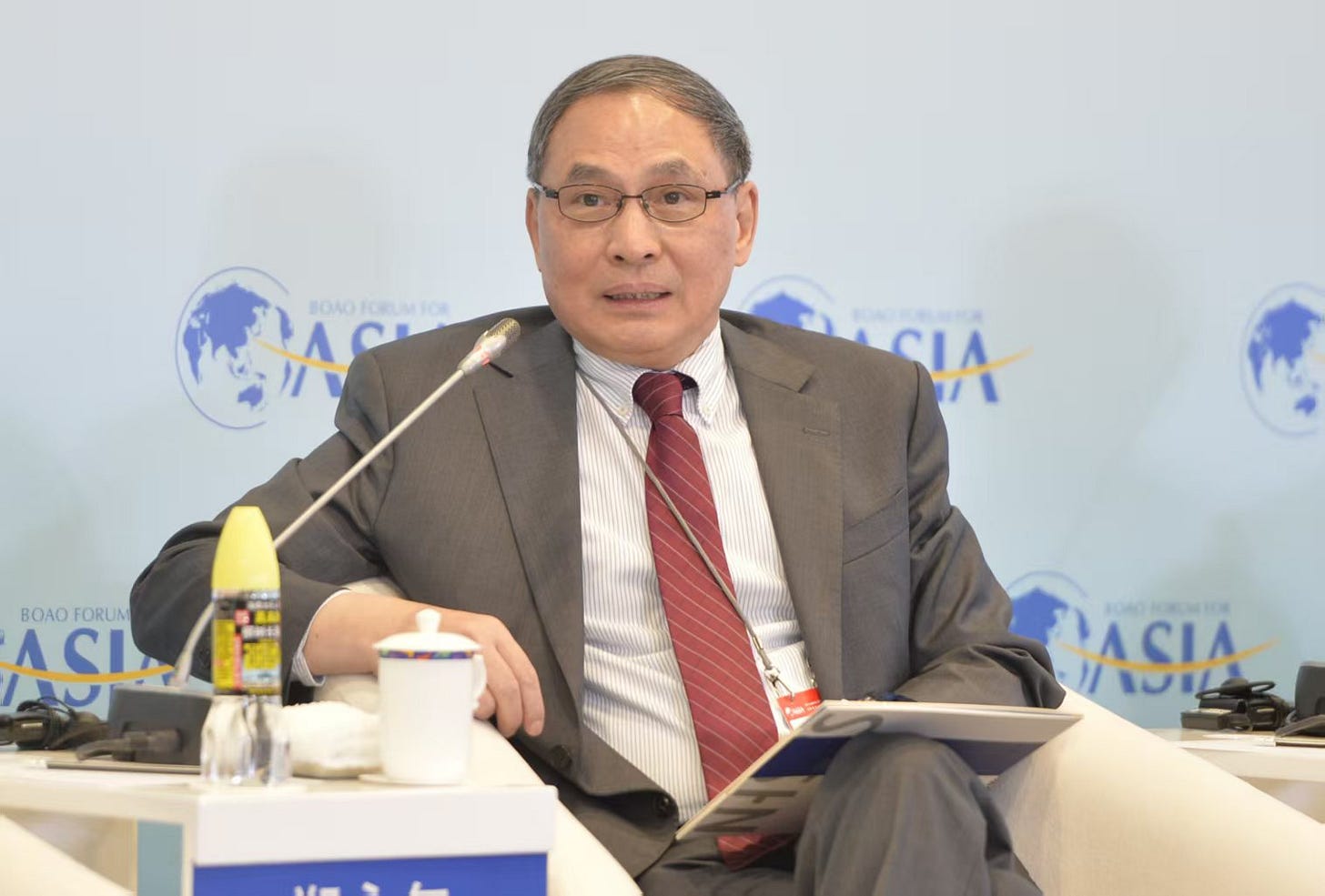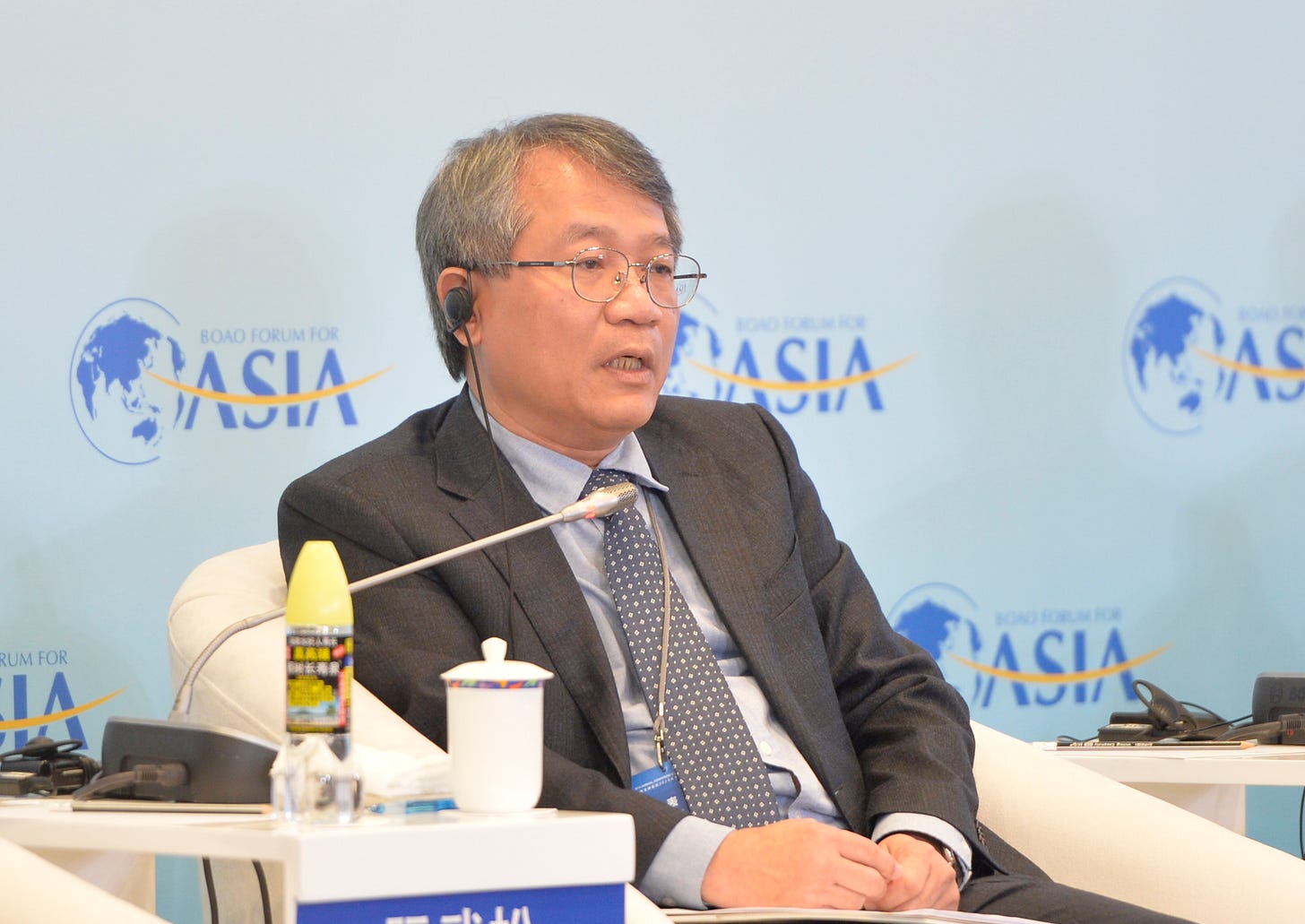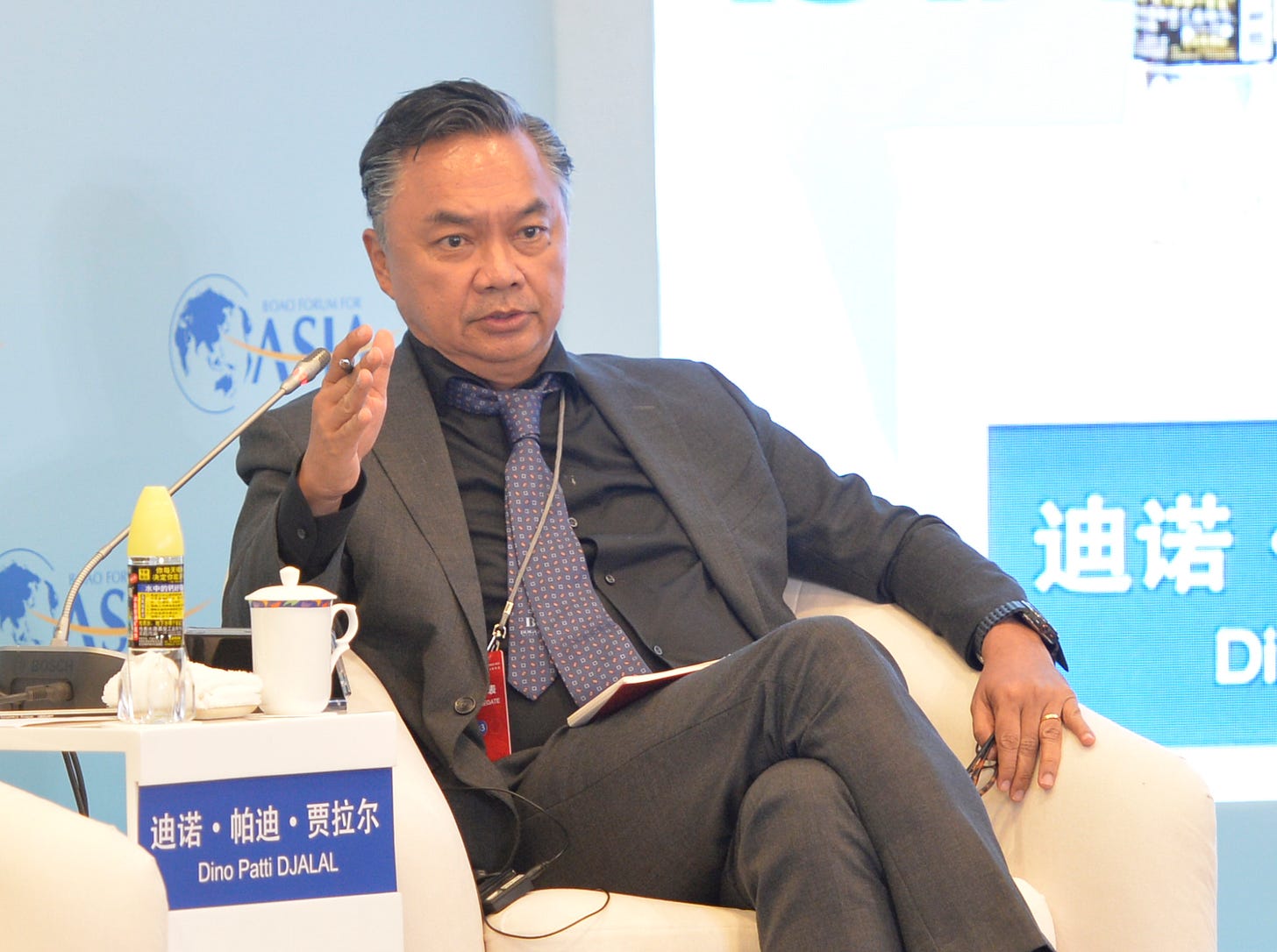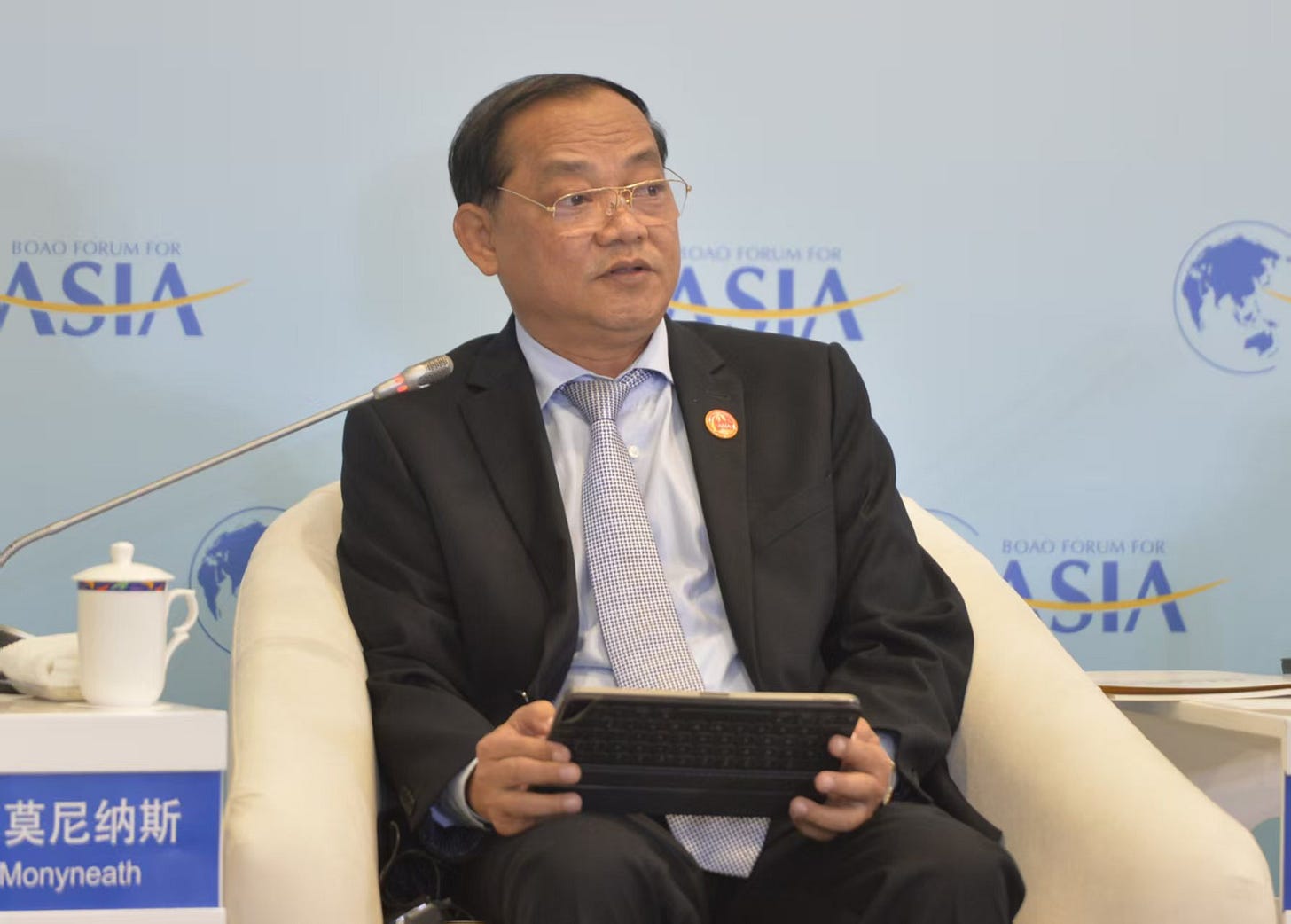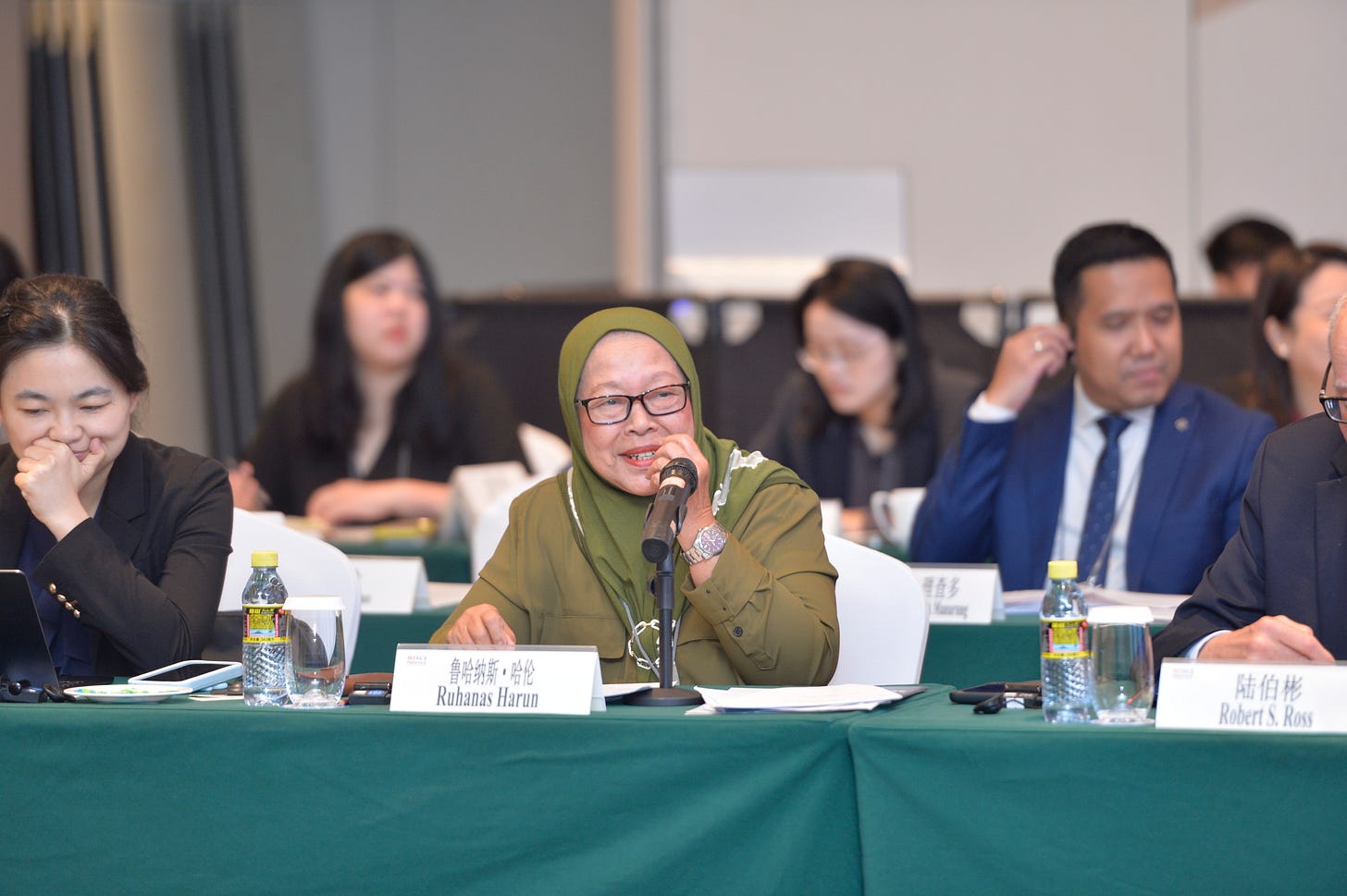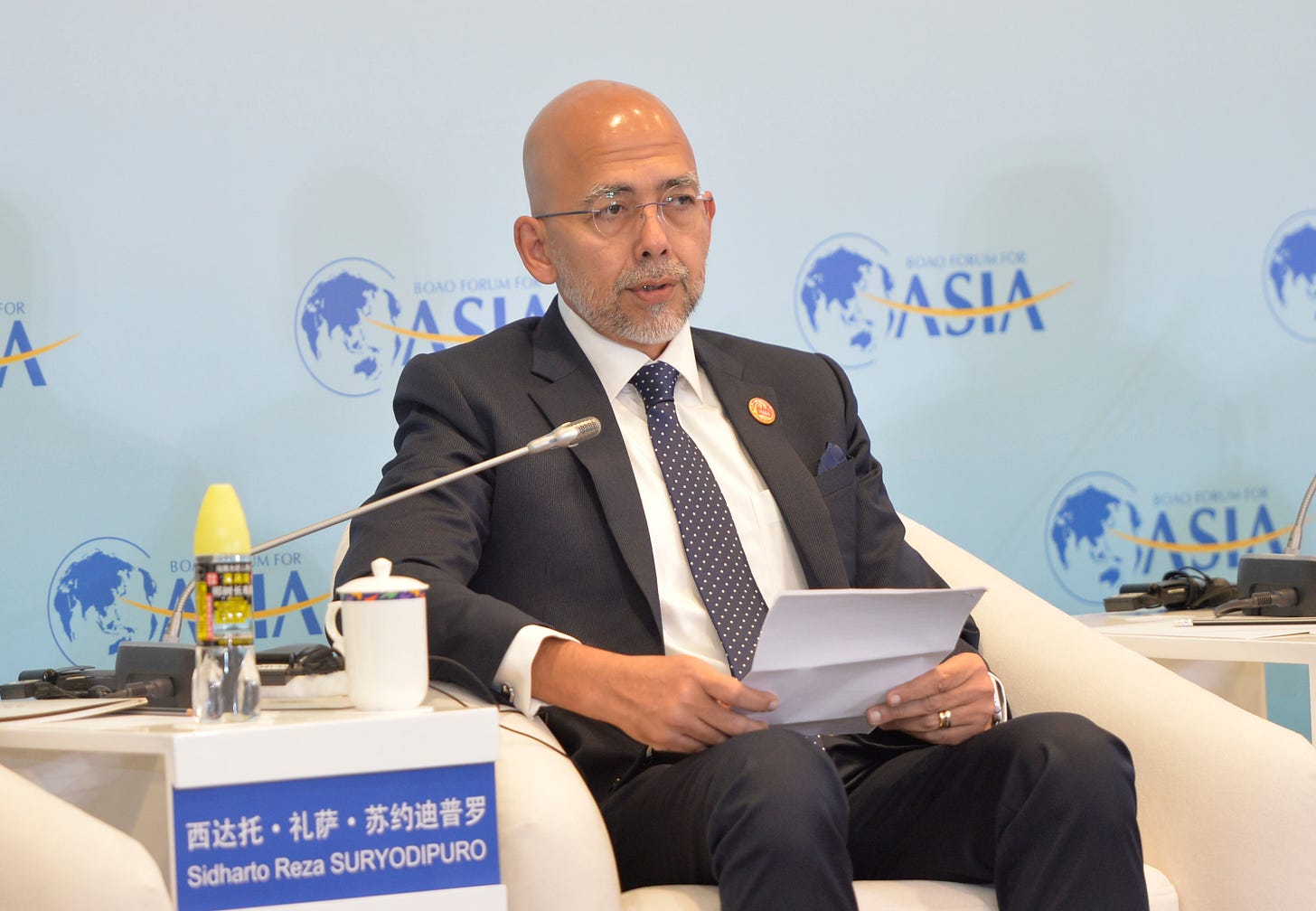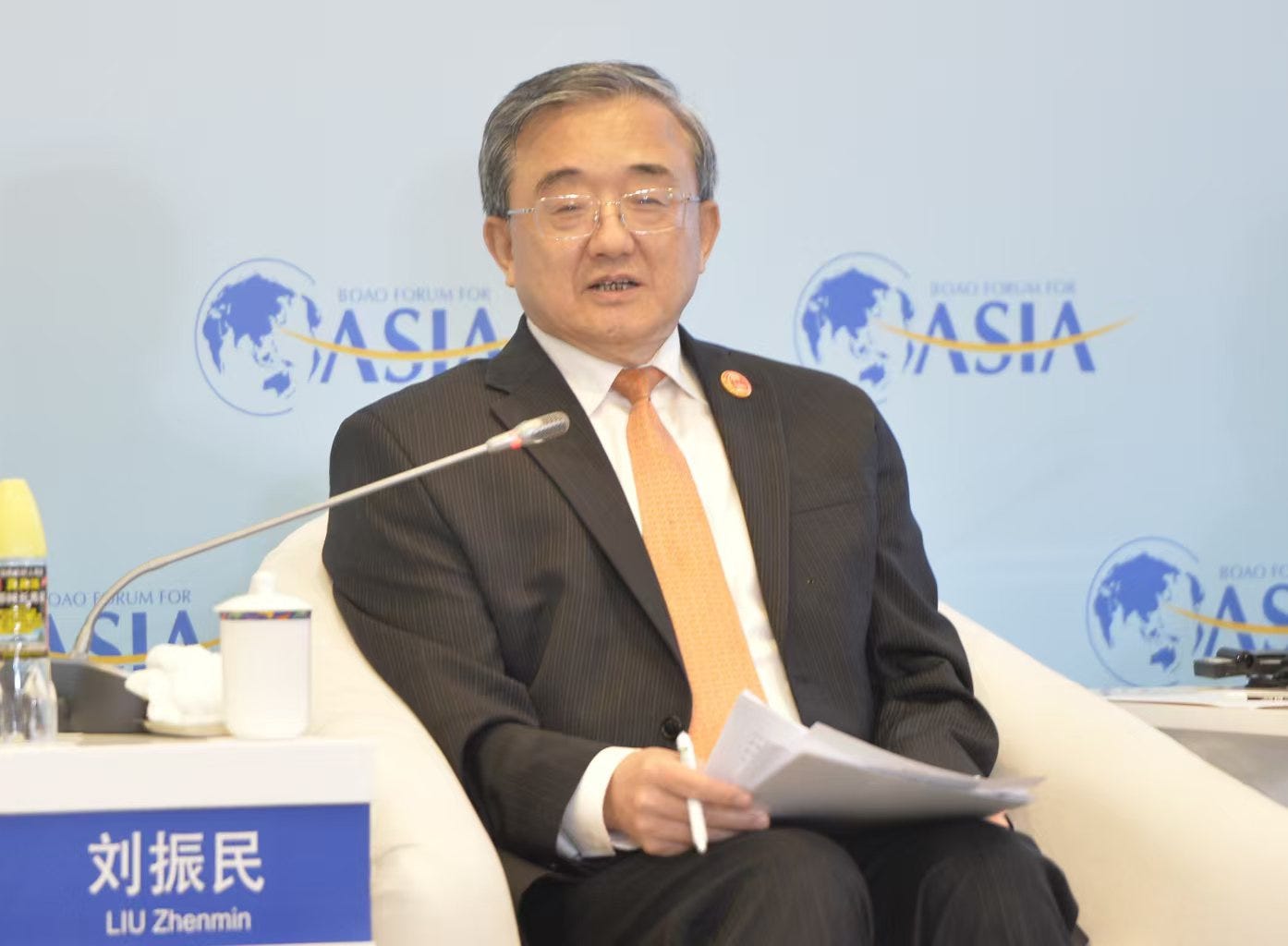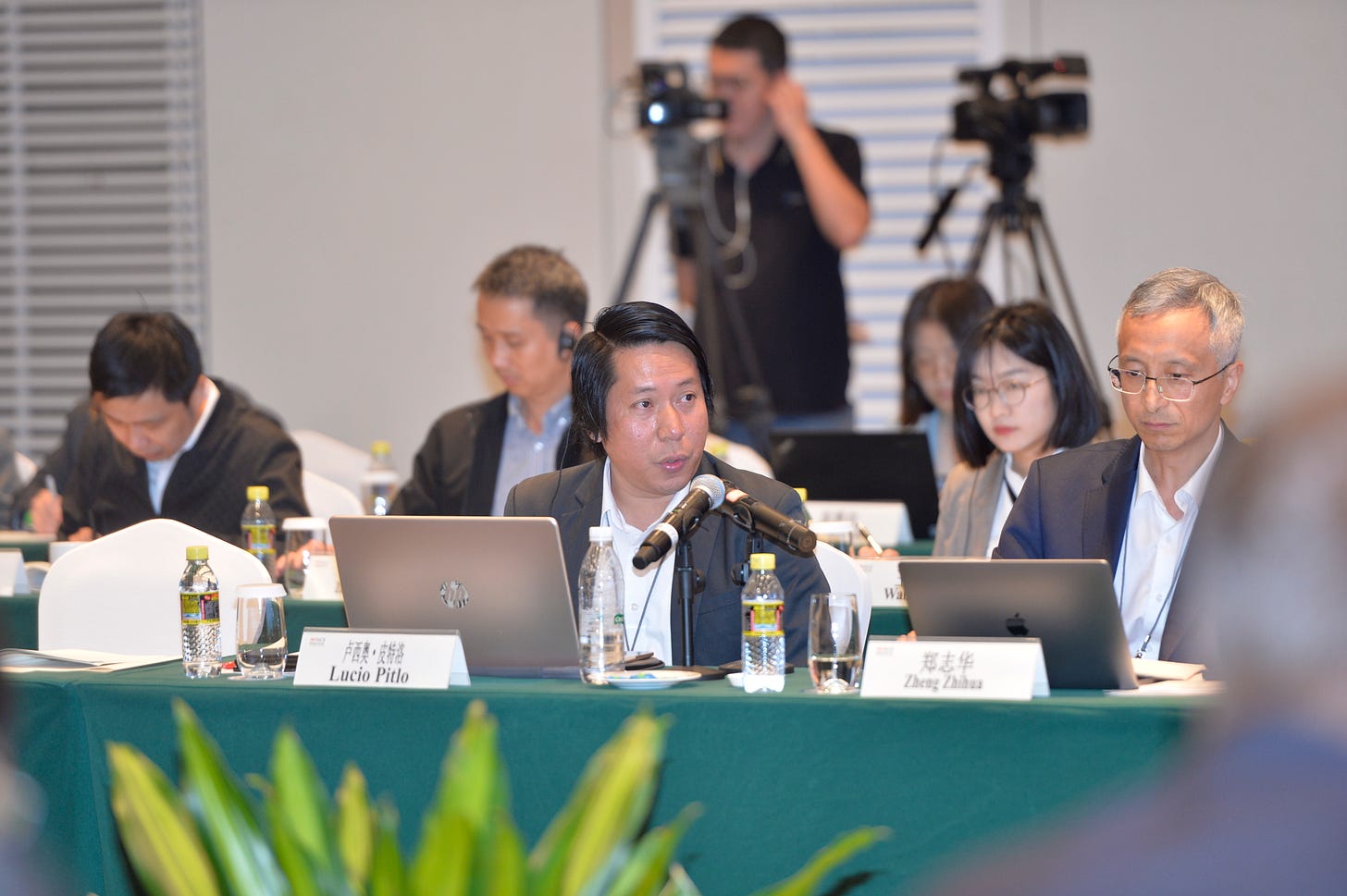Key takeaways of South China Sea subforum in Boao
Nearly 200 experts, scholars, diplomats, former politicians and government officials from more than 10 countries and regions attended the subforum on March 27 and 28
Editor's notes:
Lately, it seems that the ocean has been at the center of many conversations. Just yesterday, we published a piece on undersea cables, and today’s newsletter turns to a panel discussion on the South China Sea, held during the recently concluded Boao Forum for Asia (BAF) Annual Conference.
Located on the east coast of Hainan Province facing the South China Sea, Boao offers an ideal setting for discussions on the South China Sea issue. Over the years, it has become a tradition to discuss the issue at the Boao Forum for Asia (BAF) Annual Conference, one of China's major high-level international forums, sometimes known as the "Asian Davos."
This year, the Haikou-based National Institute for South China Sea Studies held a subforum on the sidelines of the BFA Annual Conference 2025, titled "Illuminating the Blue: Building the South China Sea into a sea of Peace, Friendship and Cooperation." Nearly 200 experts, scholars, diplomats, former politicians and government officials from more than 10 countries and regions attended the subforum on March 27 and 28, one day open-door and another day closed-door.
Some thoughts about the current situation in the South China Sea after we attended the subforum: We need to keep outside interference out and focus on working together through dialogue, especially in today’s unpredictable world. China and ASEAN countries should push forward and wrap up the South China Sea Code of Conduct as soon as possible, aiming to get it done by 2026.
It is the time of profound global transformation brought by the U.S. Trump Administration, the ongoing Russia-Ukraine conflict and Asia's continued rise in economic and geopolitical terms. These dynamics have made the South China Sea issue more critical and far-reaching. The semi-official subforum provided a platform for South China Sea countries to exchange views, concerns and evaluations of the issue, and some delegates did put forward critical points, which were summarized below.
The origin and evolution of the South China Sea issue
Chinese vice foreign minister Chen Xiaodong (陈晓东) delivered a keynote speech at the event. He said based on the long-standing historical practice of the Chinese people and government, the consistent position of successive Chinese governments, as well as China's domestic laws and international laws, China's rights and claims in the South China Sea have always been clear and unequivocal. Specifically:
1. China has sovereignty over the South China Sea Islands, including the Dongsha Islands, Xisha Islands, Zhongsha Islands, and Nansha Islands.
2. The South China Sea Islands are entitled to internal waters, territorial seas, and contiguous zones.
3. The South China Sea Islands are entitled to exclusive economic zones (EEZs) and continental shelves.
4. China has historical rights in the South China Sea.
China's sovereignty over the South China Sea islands was not disputed before the 20th century. However, in the 1930s and 1940s, France and Japan illegally seized some islands and reefs by force. As part of the post-World War II international order, China recovered sovereignty over the Xisha and Nansha Islands that had been occupied, and there is generally no objection to this in countries around the world.
Since the 1970s, the discovery of abundant oil and gas resources in the waters around the Nansha Islands has drawn widespread attention from neighboring countries. Some coastal states have illegally occupied certain islands and reefs of China's Nansha Islands and put forward their own claims regarding EEZs and continental shelves in the South China Sea.
"Thus, the essence of the South China Sea issue lies in the territorial claims and illegal occupation of some of China's islands and reefs by certain neighboring countries, leading to disputes over maritime delimitation. This distinction should be crystal clear," Chen added.
"If a outsider power were in China’s position, it would certainly not exercise the same level of restraint. One can easily imagine what the situation in the South China Sea would be like under such circumstances," said Chen.
Do not underestimate ...
Professor ZHENG Yongnian (郑永年), dean of the Chinese University of Hong Kong's School of Public Policy in Shenzhen, Guangdong province, is known for his outspokenness in Chinese and global affairs. Zheng on the subforum voiced his concerns about the current international order brought by the U.S. Trump administration and the intertwinement of the South China Sea issue with the broader geopolitical environment. He said that we should not underestimate three things.
Zheng Yongnian
Firstly, we should not underestimate the destructive power of the Trump administration on world order. We have already seen that in just over two months since Donald Trump took office, he has been redrawing the world map, coveting Panama, Canada and Greenland, and planning to abandoning Ukraine and America's European allies.
The second thing is the impact of Trump's policies on U.S. allies highly dependent on the United States. Trump is not only dismantling the U.S. and its allies but also destroying the entire order that these deeply dependent countries relied on. Europeans are now worried, and South Korea, a stubborn U.S. ally in East Asia, is now in the U.S. Government's blacklist.
The third thing that should not be underestimated is China's ability to shape the international order. Some people think that since China is now a strong country, they believe it can participate in dividing the world.
That is not the case. For thousands of years, China has never turned any country into a colony like Europeans did around the world. Asian countries can rest assured — China will not engage in the global power struggle for territorial division.
When it comes to South China Sea issue, as the U.S. is withdrawing from global affairs, Asian countries should seek common ground while respecting differences and should not rely on external forces to solve our problems. Asian countries should uphold the spirit of pragmatism and work together to maintain Asia's overall stability and development. Within this framework can we resolve the South China Sea issue.
Nguyen Vu Tung
Nguyen Vu Tung, a senior adviser and former president of the Diplomatic Academy of Vietnam, echoed Zheng's views, saying that the U.S. Foreign policy in recent weeks seemingly tends to alter the existing international order, which is likely to have an impact on the future development of the South China Sea issue.
"Placing the issue within the broader global and regional context, we are witnessing a new and heightened level of uncertainty, which will have significant implications for future developments," said Tung.
A key lesson from the conflict between Russia and Ukraine is that small and medium-sized countries face increasing complexity in maintaining strategic autonomy while navigating these global power shifts.
Cooperation, consultation needed for South China Sea region
China vows to building the South China Sea as sea of peace friendship and cooperation, which was echoed by speakers on the sub-forum. Dino Patti Djalal, former Indonesian vice foreign minister and ambassador to the United States, put forward four "C"s to manage the South China Sea: consultation, confidence, cooperation and conclusion.
Dino Patti Djalal
"The first is obviously consultation. Because before 1990, none of the claimants were talking to one another," said Djalal, who added that in major conflicts in the current world, in Gaza Strip and Ukraine, to name a few, there is no consultation like South China Sea countries are doing.
Confidence and trust building between China and countries like Malaysia and Vietnam is growing, especially at higher levels. However, trust among the public regarding the South China Sea remains a challenge, thus building confidence is important in the region, Djalal said, who also called for finishing Code of Conduct for South China Sea (COC) as a major effort for cooperation.
Vann Monyneath, under-secretary of state for the Ministry of Environment of Cambodia, suggested that cooperation in South China Sea could start from environmental initiatives, while a higher level of integration could enhance the effectiveness of these efforts.
Regional complexities involve multiple differences, and a focus on integrated, science-based approaches to energy and environmental conditions. Government collaboration on environmental issues and partnerships can play a crucial role in addressing these challenges effectively.
Vann Monyneath
While China is not a member of ASEAN, some people tend to frame ASEAN and China as being in opposition. However, this perception is not entirely accurate, as ASEAN and China share very close political, economic, and social ties. In many ways, we may not even realize how interconnected we are with China socially and culturally, Prof. Ruhanas Harun from National Defence University of Malaysia, told at the closed-door section of the subforum on.
Harun shared her observation on the flight to Hainan, which was full of Malaysians. "When I asked why they were traveling there, they mentioned that their ancestors came from this region. This reflects the deep historical and familial ties between our people. These close relationships are further strengthened by the strong political ties between Malaysia and China."
Ruhanas Harun
Regarding the South China Sea issue, Harun disagreed with some opinions saying that the issue devides the region. The COC discussions should be viewed in the broader regional context, not just from Malaysia’s perspective.
"South China Sea stability should be treated and shared as a public good, and maintaining it requires regional and international cooperation. While discussions on this matter are normal, ensuring stability is key to fostering collaboration," said Sidharto Reza Suryodipuro, Director-General and Senior Official for Asean Cooperation, Indonesian Foreign Ministry.
Suryodipuro said that Indonesia, given its strategic position as a gateway to and from the South China Sea, strongly supports ASEAN's efforts to maintain regional security and cooperation. It is essential to emphasize the importance of ASEAN's active role in promoting stability.
Sidharto Reza Suryodipuro
He also lauded that the subforum has made important contributions to promoting regional stability and inclusive order. This subforum is also a valuable platform for promoting maritime peace and cooperation in the South China Sea and promoting expert cooperation.
Beware of interference by external forces
One of the challenges and uncertainties that the South China Sea region faces is the interference of from outside, for example, the United States. According to a report issued by the Beijing-based think tank South China Sea Strategic Situation Probing Initiative (SCSPI) on March 25, the U.S. military in 2024 continued to strengthen its military deterrence against China, maintaining high-intensity operations as well as battlefield preparation in the South China Sea and its surrounding areas.
Chen Xiaodong said at the event that certain external countries (without naming the United States) have intensified their military involvement in the region, frequently stirring up tensions in an attempt to contain China.
"On the other hand, some claimant states in the South China Sea, in pursuit of illegal gains and unilateral claims, have willingly served as pawns for external forces, repeatedly provoking maritime confrontations. Such actions pose challenges and risks to the peace and stability of the region," said Chen.
The key to regional security must remain firmly in our own hands. For the South China Sea to achieve stability and for disputes to be properly resolved, external interference must be excluded.
Liu Zhenmin (刘振民), China's special envoy for climate change and former UN under secretary-general and former Chinese vice foreign minister, said at the event that countries in this region should learn the painful lessons from Russia-Ukraine conflict, that is, the Cold War between NATO and Russia did not end, and NATO's eastward expansion ultimately led to the outbreak of the ongoing conflict.
Liu Zhenmin
We must resolutely prevent a similar situation from happening in Asia. First and foremost, we should prevent the emergence of a "NATO-like alliance" in Southeast Asia while strengthening the framework for collective security in the region, according to Liu.
"If a country in the region relies on a major power for protection, the risk will always be there. This is a crucial issue that every ASEAN country must carefully consider. Historically, the Vietnam War lasted for many years, with both the United States and France occupying Vietnam. This serves as a painful lesson of external powers interfering in Southeast Asia," said Liu.
The Philippines in recent years had disputes with China over China's Huangyan Dao and Ren'ai Jiao, where Manila grounded a military vessel over 25 years ago.
Lucio Pitlo, research fellow of the Philippines' Asia Pacific Pathways to Progress Foundation, admitted at the closed-door section of the subforum that the regional situation is becoming increasingly tense. There were several violent incidents in the South China Sea last year, and large-scale conflicts are unlikely. If crisis management is not done well, non-claimant countries may intervene. He added that the Philippines cannot dismiss China's concerns as insignificant.
Lucio Pitlo
Expecting finalizing Code of Conduct by 2026
Many attendees of the subforum called for concluding the COC for South China Sea by 2026.
In November 2002, government representatives from China and ASEAN countries signed the Declaration on the Conduct (DOC) of Parties in the South China Sea in Phnom Penh, Cambodia. The DOC clearly states, "The Parties concerned reaffirm that the adoption of a COC would further promote peace and stability in the region and agree to work, on the basis of consensus, towards the eventual attainment of this objective."
Chen Xiaodong said China is willing to work with all parties to fully and effectively implement the DOC, while eliminating interference, converging on unity, and strive to reach a COC in 2026 to build a more complete rule-based order in the South China Sea.
In earlier March 2025, Chinese Foreign Minister Wang Yi said that the "third reading" of the text has been completed, and China is confident about the prospects of concluding the COC.
Sidharto Reza Suryodipuro said Indonesia and ASEAN emphasize peaceful resolution of dispute and achieving mass activity in diplomacy and international law. This is an approach that involves fully implementing the DOC and intensify negotiations with China. He also disclosed that there are extensive negotiations, discussions and work for COC within ASEAN.
Dino Patti Djalal emphasized not to underestimate the importance of the COC. Once the negotiations are completed, even though minor conflicts and misjudgments may still occur, much of the pressure can be alleviated. It will also demonstrate that, despite global turbulence, China and ASEAN are capable of effectively managing disputes in the South China Sea.
The COC has been delayed, said Djalal at the event, who added that ASEAN and China must accelerate the process in a bid to meet the 2026 deadline. Given the challenge, it may be worth considering an interim arrangement or understanding between claimant states before the finalizing of the COC.
"While some progress has been made, to be frank, it has been too slow. I hope China will accelerate the COC negotiations and directly address complex and sensitive issues," said Lu Zhenmin.
"The COC, in my own view, is not the end. When we sign the COC, it is the beginning of a new level. Because implementing COC is more important than making it, and it will be a long process," said Tung.

